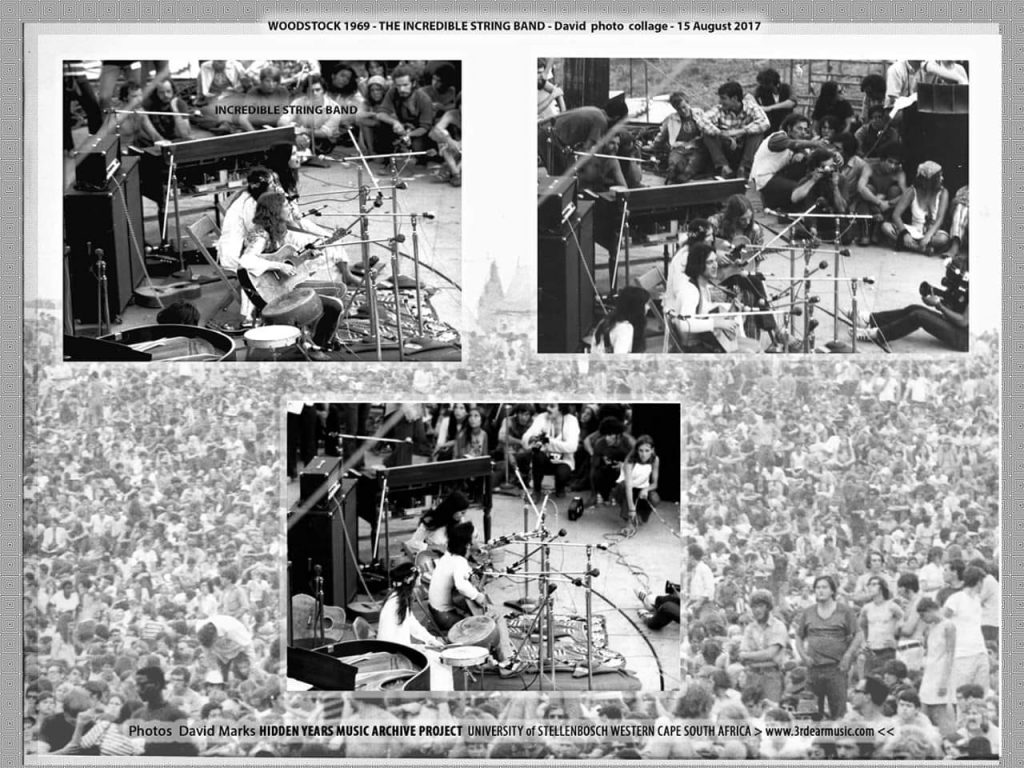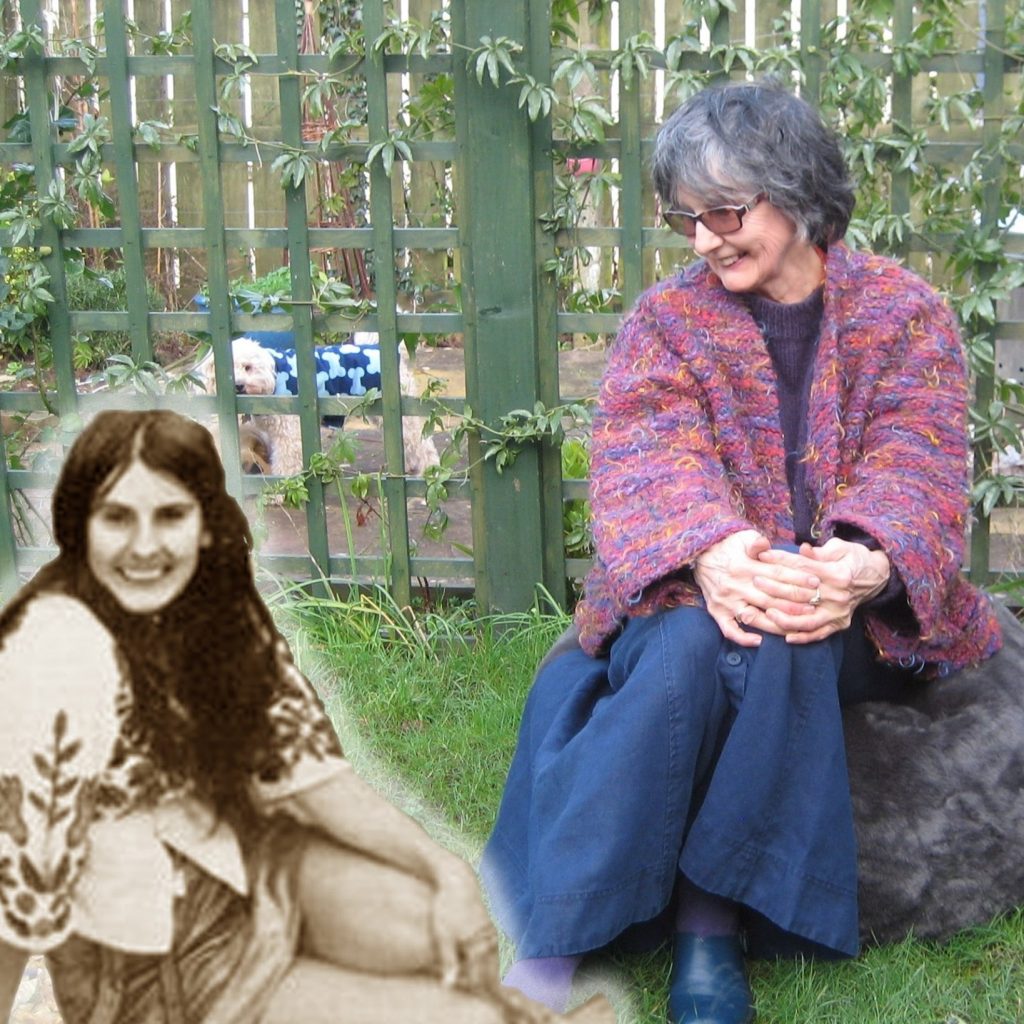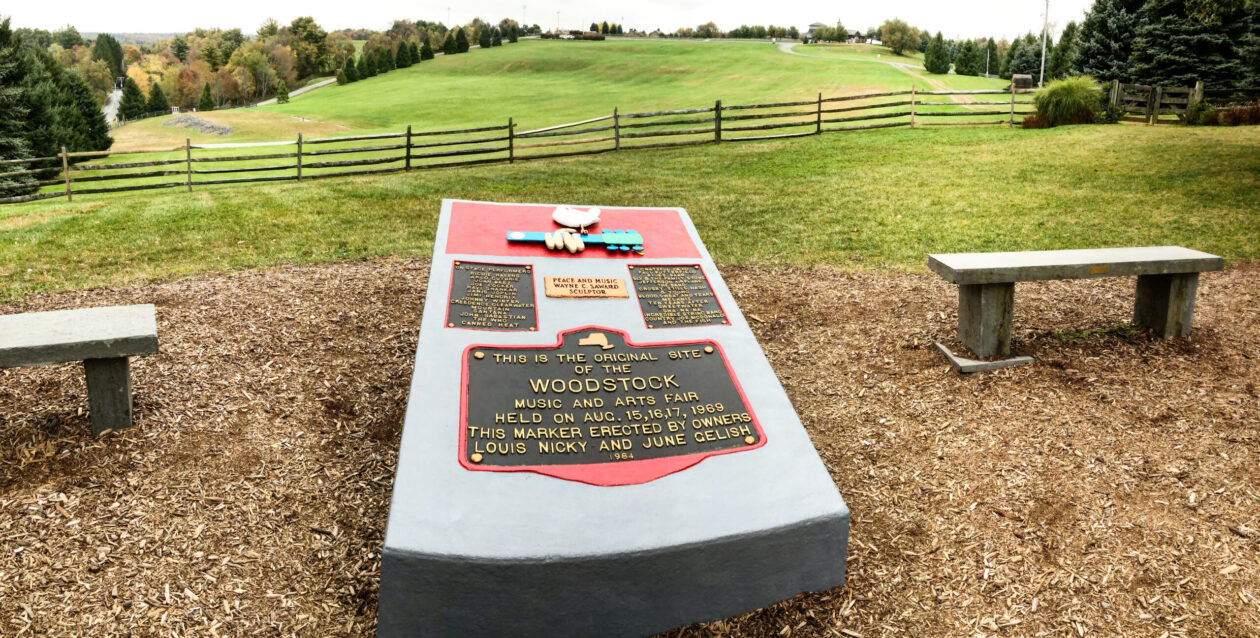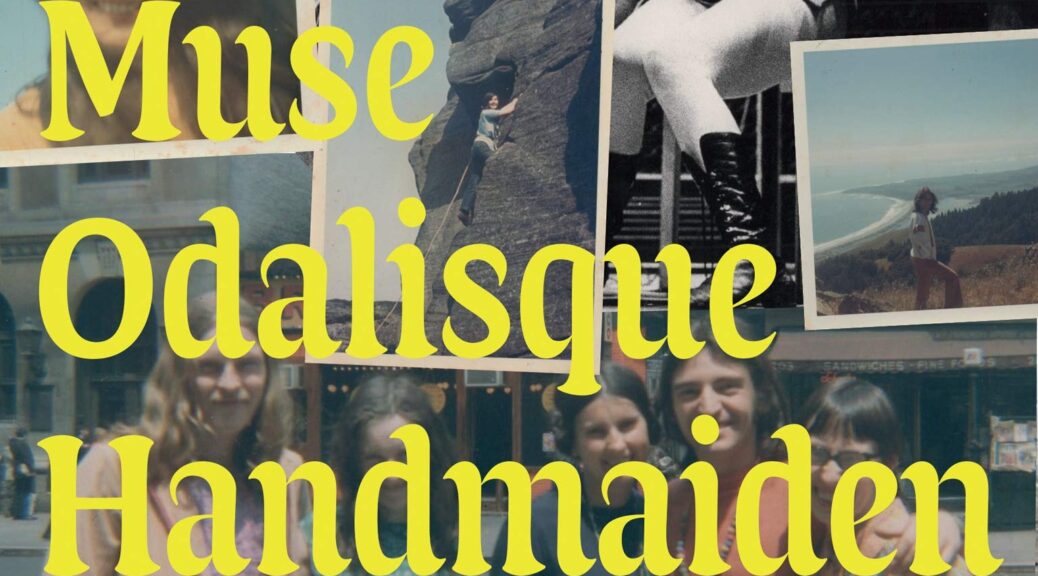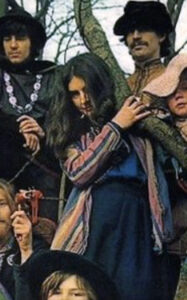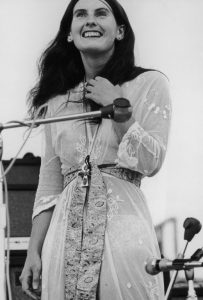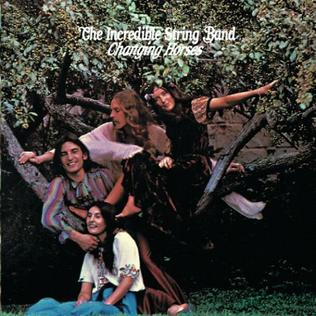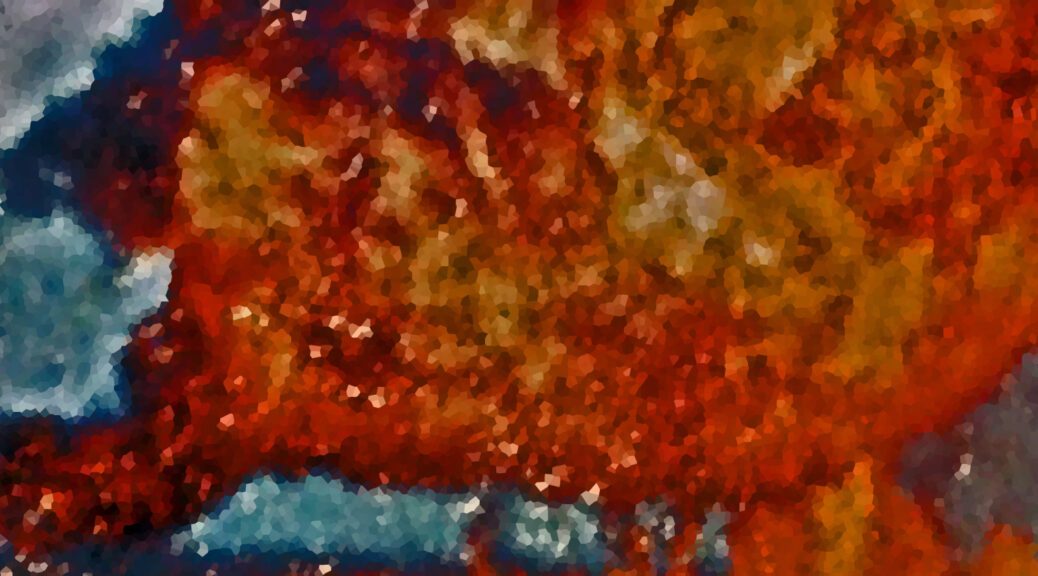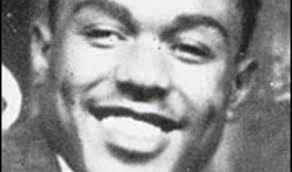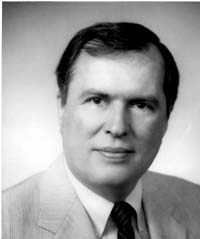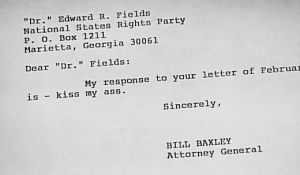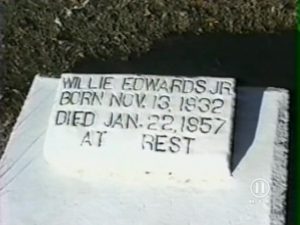November 20 Peace Love Art Activism
Feminism
Jessie Daniel Ames Lyn
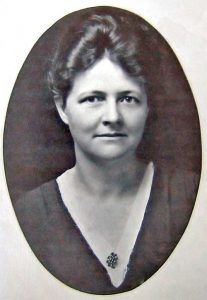
November 20, 1930: The Association of Southern Women for the Prevention of Lynching founded in Atlanta, Georgia by Jessie Daniel Ames, a white Texas-born woman active in suffrage and interracial reform movements. The ASWPL was comprised of middle and upper-class white women who objected to the lynching of African Americans. (next BH & Lynching, see Nov 25; see AL3 for expanded chronology of early 20th century lynching)
Florence Reece
In 1931 Florence Reece (1900-1986) “was a writer and social activist whose song ‘Which Side Are You On?’ became an anthem for the labor movement. Borrowing from the melody of the old hymn ”Lay the Lily Low,” Mrs. Reece wrote the union song…to describe the plight of mine workers who were organizing a strike in Harlan County, Ky. Mrs. Reece’s husband, Sam, who died in 1978, was one of those workers. Pete Seeger, the folk singer, recorded the song in 1941. It has since been used worldwide by groups espousing labor and social issues.” — New York Times Obituaries, August 6, 1986. (Labor, see March 3; Feminism, see Dec 10; see News Music )
Hoyt v Florida
November 20, 1961: in Hoyt v Florida the US Supreme Court held that women could be excluded from serving on juries, in part because a “woman is still regarded as the center of home and family life.” Women could serve on juries, but they had to go to the courthouse and register as being interested and willing to serve. At the time this case first went to trial, only 20 out of about 46,000 women who were registered to vote in Hillsborough County, Florida, had also registered to be a juror. The Court reversed itself 14 years later, in Taylor v. Louisiana (January 21, 1975), which affirmed the right of women to serve on juries. (see Dec 14)
Malala Yousafzai
November 20, 2013: Yousufzai received the European Parliament’s Sakharov Prize for Freedom of Thought. Named after the Russian dissident and scientist Andrei Sakharov, who spoke against the tyranny of the Soviet Union, its previous recipients included Nelson Mandela in 1988 and followed by Kofi Annan and Aung San Suu Kyi. [BBC article] (see Dec 6)
November 20 Peace Love Art Activism
Black History
Scottsboro Travesty
November 20, 1933: the seven oldest youths were tried in front of the new judge and jury. Haywood Patterson and Clarence Norris were sentenced to death. (see Scottsboro for full story)
Fair Housing
November 20, 1962: President John F. Kennedy issued Executive Order 11063, banning federally funded housing organizations from discriminating against individuals on the basis of race. The order attempted to end the rampant racial prejudice influencing the loan decisions of government-backed organizations like the Federal Housing Administration. These organizations commonly engaged in practices like “red-lining,” a color-coded method of labeling the riskiness of a mortgage based on the racial demographics of a borrower’s neighborhood. Under this system, black neighborhoods typically received the worst ratings (red). As a result, home loans were channeled away from those communities and into mostly white, “less risky” neighborhoods. In the face of high levels of residential segregation, African Americans found themselves without ready access to federal home loans and largely unable to purchase homes regardless of their financial situation. Many African Americans were thus relegated to living in segregated, impoverished areas.
Kennedy had promised to sign the order during the 1960 election campaign, saying he could do it with a “stroke of the pen,” but he then angered civil rights activists by refusing to sign it for over a year and a half.
While President Kennedy’s executive order marked an important symbolic step in redressing the problem of discriminatory housing policies in the United States, it did not immediately have a dramatic impact. Because the order failed to provide a strong enforcement mechanism, impacted agencies were simply directed to take steps to police themselves. This allowed discriminatory lending practices to continue without the threat of federal intervention. It was not until the passage of the Fair Housing Act of April 11, 1968 that a mechanism for enforcing fair housing regulations was established. (BH, see Dec 14; FH, see August 10, 1965)
BLACK & SHOT
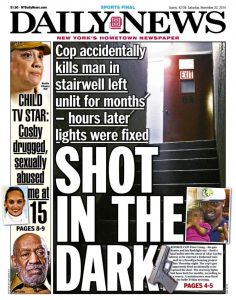
November 20, 2014: 28-year-old Akai Gurley exited his girlfriend’s apartment in a Brooklyn, New York, public housing building. He started going down a dark stairwell that had a broken light. Rookie New York Police Department Officer Peter Liang, who had his gun drawn as he patrolled the stairwell, shot and killed Gurley. Police said the shooting was accidental. The New York Daily News reported that, instead of calling an ambulance, Liang texted his union.
On April 19, 2016, Liang was sentenced to five years probation and 800 hours community service after downgrading his manslaughter conviction to criminally negligent homicide (NYT article) (see Nov 22)
November 20 Peace Love Art Activism
Religion and Public Education
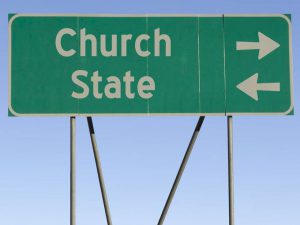
November 20, 1947: a new organization, Protestants and Other Americans United for Separation of Church and State (POAU), was formed on this day in Chicago to fight for the separation of church and state and to defend the Establishment Clause of the First Amendment.
The creation of POAU was prompted by the Supreme Court’s Everson v. Board of Education decision, on February 10, 1947, which permitted public funds for the transportation of students to private and parochial schools. POAU continues today under the name Americans United. (see Nov 22)
U.S. Catholic Bishops
November 20, 1948: U.S. Catholic Bishops condemned public school secularism and wanted the Supreme Court McCollum v. Board of Education (January 26, 1946) decision reversed. (see Dec 9)
November 20 Peace Love Art Activism
November 20 Music et al
November 20, 1960: German authorities ordered Harrison deported. He stayed up all that night teaching John Lennon his guitar parts, so The Beatles could continue without him. (see Nov 21)
Bob Dylan album
November 20 and 22, 1961: Dylan recorded his first album at Columbia Records.
Suze Rotolo
In mid-December 1961: shortly after recording his first album for Columbia, Dylan moved into his first rented apartment in the middle of West Fourth Street, a tiny, scruffy place above Bruno’s Spaghetti Shop, and persuaded his girlfriend, Suze Rotolo, to move in with him. (see January 1962)
I Hear a Symphony
November 20 – December 3, 1965, “I Hear a Symphony” by the Supremes #1 on the Billboard Hot 100.
November 20 Peace Love Art Activism
Vietnam
Beatrice Whitnah
November 20, 1965: approximately 10,000 demonstrators marched into Oaklad protesting US involvement in the Viet Nam war. In front was Beatrice Whitnah, 84, of Berkeley being pushed in a wheelchair. She was a Gold Star mother who lost a son in World War II. (see Nov 26)
Dow Chemical
November 20, 1967: San Jose State College (CA) students demonstrated against the Dow Chemical Company, the maker of napalm. Police were sent in, but the students refused to disperse and several protest leaders were arrested. The next day the students defied California governor Ronald Reagan’s warning against further demonstrations and again staged an anti-Dow demonstration. (see Nov 21)
My Lai Massacre
November 20, 1969: Seymour Hersh, an independent investigative journalist, filed a second My Lai story based on interviews with Michael Terry and Michael Bernhardt, who served under 1st Lt. William Calley during the action that was later dubbed the My Lai massacre.
Also on this day, the Cleveland Plain Dealer published explicit photos of the dead at My Lai. (next Vietnam, see Nov 26)
Sgt Ron Haeberle
November 20, 2009: former Army photographer Sgt Ron Haeberle admitted that he destroyed photographs that depicted soldiers in the act of killing civilians at My Lai. (next Vietnam, see May 23, 2016; see My Lai for chronology)
November 20 Peace Love Art Activism
Native Americans
Alcatraz Takeover
November 20, 1969: seventy-nine Native-Americans seized control of the island of Alcatraz, the former federal prison and now a national park, to dramatize the campaign for Native-American rights. The occupation on this day was led by the Indians of All Tribes (IAT), who claimed that the island belonged to Native Americans under the 1868 Treaty of Ft. Laramie, which provided for the return of all abandoned federal property to Native-Americans. (NYT article) (see Dec 22)
November 20 Peace Love Art Activism
Environmental Issues
DDT
November 20, 1969: the Nixon administration announced a halt to residential use of the pesticide DDT as part of a total phase-out. (see January 1, 1970)
Keystone pipline
November 20, 2017: the Keystone XL pipeline, an $8 billion project that had attracted significant protest from environmental groups, cleared a major regulatory hurdle on its path to completion when Nebraska Public Service Commission certified the pipeline to run through the state.
The commission — “an elected panel of four Republicans and one Democrat,” approved the project by a 3-2 vote. Though they did so with some reservations: The regulators rejected TransCanada’s preferred route through the state, suggesting another one farther east that would avoid the state’s Sandhills region. [NPR story] (see Dec 4)
November 20 Peace Love Art Activism
Jack Kevorkian
November 20, 1991: the Michigan state Board of Medicine summarily revoked Kevorkian’s license to practice medicine in Michigan. (see JK for chronology)
November 20 Peace Love Art Activism
Stop and Frisk Policy
November 20, 2007: a RAND study found that the NYPD’s stop-and-frisk program did not engage in racial profiling. (see Dec)
November 20 Peace Love Art Activism
LGBTQ
November 20, 2013: Illinois Governor Pat Quinn signed into law and made Illinois the 16th state to allow same-sex marriage. The governor slowly signed the bill with 100 pens that quickly became souvenirs. He did so at a desk shipped from Springfield that the administration said President Abraham Lincoln used to write his first inaugural address in 1861 — a speech on the cusp of the Civil War that called on Americans to heed “the better angels of our nature.” Referring to Lincoln’s Gettysburg Address, Quinn said, “”In the very beginning of the Gettysburg Address, President Abraham Lincoln of Illinois said that our nation was conceived in liberty. And he said it’s dedicated to the proposition that all men are created equal, and that’s really what we’re celebrating today,” he said. “It’s a triumph of democracy.” [USA Today article] (see Nov 21)
South Carolina
November 20, 2014: the U.S. Supreme Court denied a South Carolina request to block same-same weddings from proceeding. [Reuters article] (see Nov 25)
November 20 Peace Love Art Activism
Immigration History
Obama/Immigration
November 20, 2014: President Obama asserted the powers of the Oval Office to reshape the nation’s immigration system and all but dared members of next year’s Republican-controlled Congress to reverse his actions on behalf of millions of immigrants.
In a 15-minute address from the East Room of the White House that sought to appeal to a nation’s compassion, Mr. Obama told Americans that deporting millions is “not who we are” and cited Scripture, saying, “We shall not oppress a stranger for we know the heart of a stranger — we were strangers once, too.”
His directive would shield up to five million people from deportation and allow many to work legally, although it offers no path to citizenship.
In 1986, Ronald Reagan signed the so-called “amnesty” law passed by Congress that granted legal status to three million undocumented immigrants, and then acted on his own the following year to expand it to about 100,000 more. [NYT story] (next Immigration, see Dec 17; Obama, see February 16, 2015; Supreme Court decision, see June 23, 2016)
Temporary Protected Status
November 20, 2017: Homeland Security officials announced that the Trump administration would the end a humanitarian program known as the Temporary Protected Status that had allowed some 59,000 Haitians to live and work in the United States since an earthquake ravaged their country in 2010.
Haitians would be expected to leave the United States by July 2019 or face deportation.
The decision set off immediate dismay among Haitian communities in South Florida, New York and beyond, and was a signal to other foreigners with temporary protections that they, too, could soon be asked to leave.
About 320,000 people now benefit from the Temporary Protected Status program, which President George Bush signed into law on November 29, 1990. This announcement followed the November 6 announcement that ended protections for 2,500 Nicaraguans. [NYT article] (see Nov 21)
Scott Warren/No More Deaths
November 20, 2019: a federal jury in Tucson, Ariz., acquitted a humanitarian aid worker Scott Warren who was charged with harboring a pair of migrants from Central America after Border Patrol agents reported seeing him provide food and shelter in the Arizona desert.
It was the second time federal prosecutors had put Warren of the faith-based border aid group No More Deaths on trial.
A jury deadlocked during his first trial on whether offering food, water and shelter to two young men who illegally crossed the U.S.-Mexico border makes Warren a criminal. This time, the jury unanimously agreed that he should be found not guilty of harboring undocumented immigrants — prosecutions that have been on the rise under President Trump’s hard-line immigration policies.
“The government failed in its attempt to criminalize basic human kindness,” Warren said after the verdict was read.
Border Patrol agents arrested Warren on January 17, 2018 after conducting surveillance on a humanitarian aid station known as “The Barn,” some 40 miles north of the border. [NPR story] (next IH, see Dec 10)
November 20 Peace Love Art Activism
FREE SPEECH, US Labor History & Colin Kaepernick
November 20, 2017: President Trump’s attack on black athletes continued as he tweeted criticizism of Oakland Raiders player Marshawn Lynch for sitting during “The Star-Spangled Banner” and then standing for Mexico’s national anthem. The Raiders were playing the New England Patriots in Mexico.
Trump’s tweet read in part: “Great disrespect! Next time NFL should suspend him for remainder of season. Attendance and ratings way down.” [Huff Post article] (FS, see Dec 15; LH see Dec 14, ; CK, see Nov 23)
November 20 Peace Love Art Activism
TERRORISM
November 20, 2017: President Trump placed North Korea back on the list of state sponsors of terrorism. He announced the move during a public meeting with his Cabinet at the White House and said the Treasury Department will announce new sanctions against North Korea. [NYT article] (see Nov 21)
November 20 Peace Love Art Activism
Women’s Health
November 20, 2018: federal judge Judge Carlton W. Reeves struck down a Mississippi law that sought to ban most abortions after 15 weeks of pregnancy. In his opinion, Reeves said the statute, described as one of the most restrictive abortion laws in the country, “unequivocally” violated women’s constitutional rights.
Reeves wrote of his “frustration” that state lawmakers had chosen to pass the law despite the fact that similar legislation has been thrown out by federal courts in other states and that such litigation is very costly for taxpayers.
He contended the “real reason” for the ban’s passage appeared to be the state’s politically driven desire to overturn Roe v. Wade, the 1973 law that assures a woman’s constitutional right to access safe and legal abortions. [HuffPost report] (see February 7, 2019)
November 20 Peace Love Art Activism
Trump Impeachment Inquiry/Public
November 20, 2019: U.S. Ambassador to the European Union Gordon Sondland told the House Intelligence Committee on the fourth day of public impeachment hearings that it was clear to him that the president was intently interested in having the Ukrainians publicly commit to investigating Democrats, including former Vice President Joseph R. Biden Jr., whose son served on the board of the Ukrainian energy company Burisma.
Sondland told the committee that he and other advisers to Trump pressured Ukraine to investigate Democrats “because the president directed us to do so.”
Sondland said that he, Energy Secretary Rick Perry and Kurt D. Volker, the special envoy for Ukraine, were reluctant to work with Rudolph W. Giuliani, the president’s personal attorney, on the pressure campaign and agreed only at Mr. Trump’s insistence. (see TII/P for expanded chronology)
November 20 Peace Love Art Activism
DEATH PENALTY
November 20, 2019: U.S. District Judge Tanya S. Chutkan blocked the U.S. government’s plan to begin executing federal prisoners for the first time in nearly 20 years. Chutkan issued a preliminary injunction halting four executions set to begin in December over concerns about the government’s lethal injection method.
In a memorandum issued with her order, Chutkan wrote that at least one of the four death row inmates — Daniel Lewis Lee, Wesley Ira Purkey, Alfred Bourgeois and Dustin Lee Honken — was likely to succeed in his lawsuit against federal agencies.
“Plaintiffs have clearly shown that, absent injunctive relief, they will suffer the irreparable harm of being executed under a potentially unlawful procedure before their claims can be fully adjudicated,” the judge wrote. [NPR story] (next DP, see February 13, 2020)
November 20 Peace Love Art Activism
